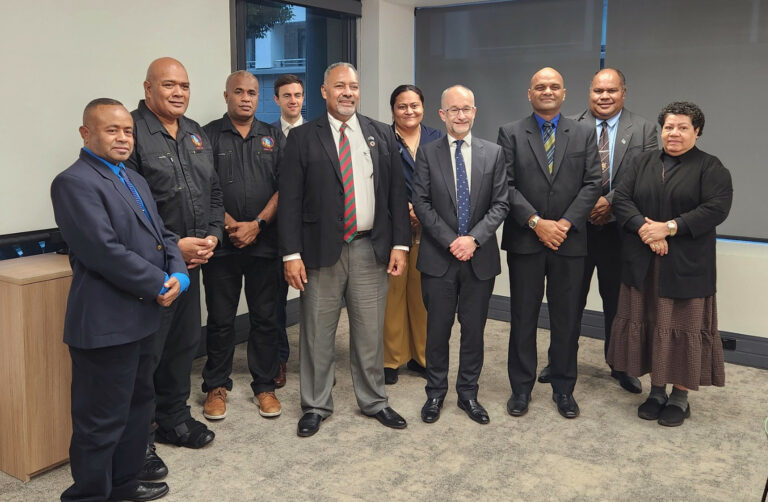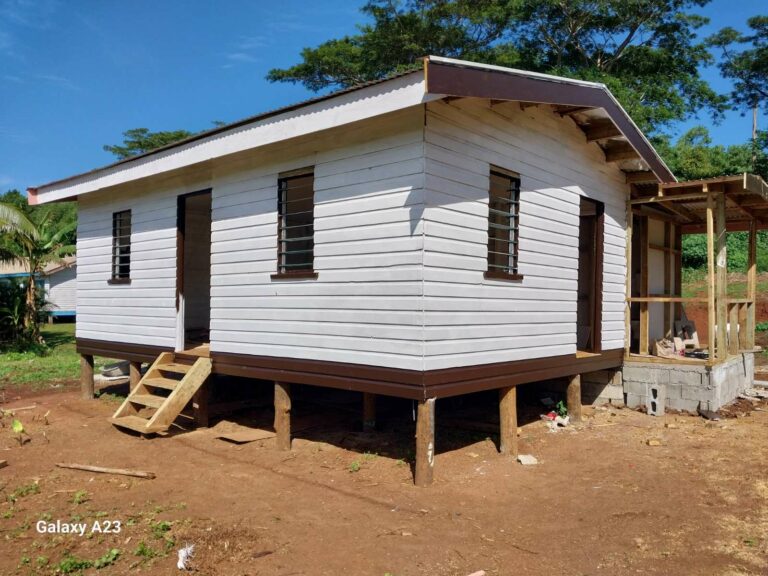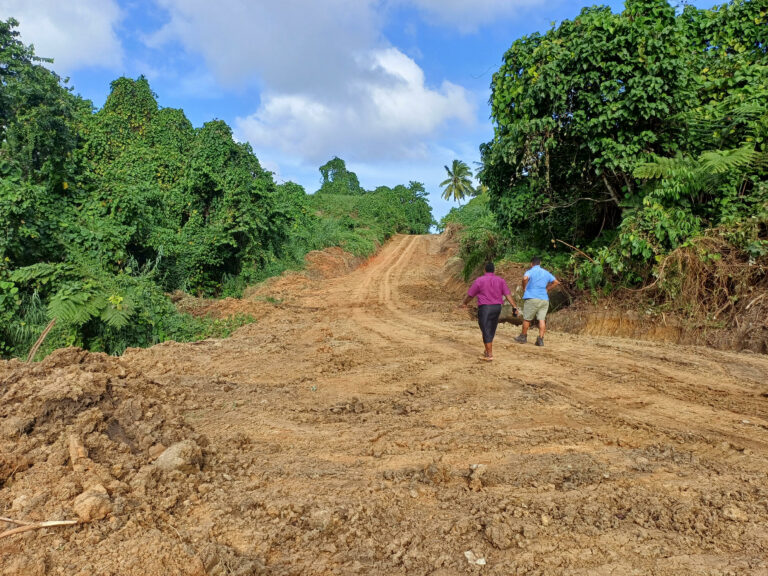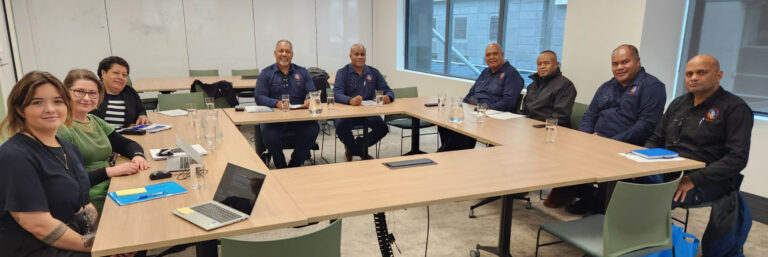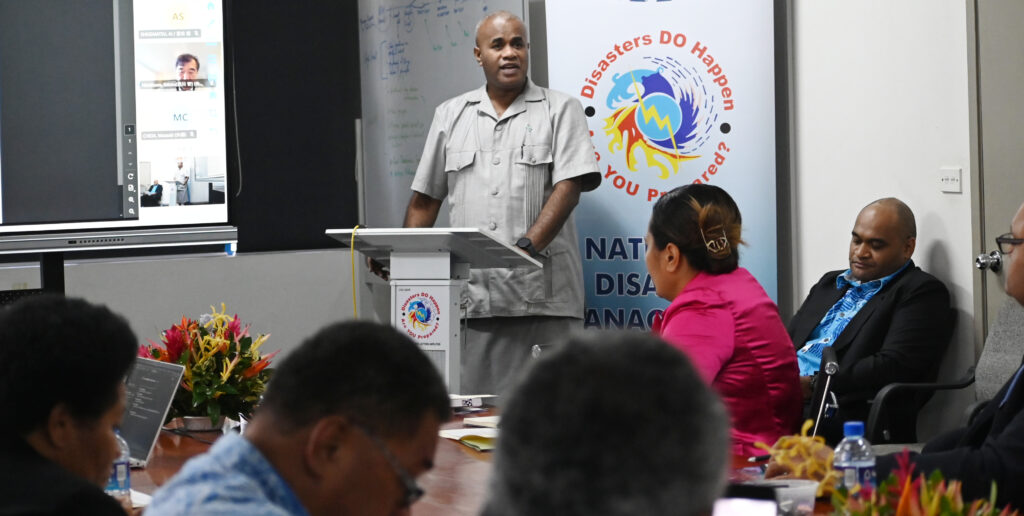
Caption: Permanent Secretary for Rural and Maritime Development and Disaster Management Mr. Isoa Talemaibua addressing the Joint Coordination Committee (JCC) of the Project on Mainstreaming Disaster Risk Reduction in Suva.
SUVA – Members of the Joint Coordination Committee (JCC) of the Project on Mainstreaming Disaster Risk Reduction in Fiji recently met in Suva to discuss the progress of the implementation of the project, and issues critical to its implementation.
In addressing the Committee members during the meeting, Permanent Secretary for Rural and Maritime Development and Disaster Management Mr. Isoa Talemaibua reiterated the motive behind the Mainstreaming DRR Project, emphasising that it was a commitment to ensuring the safety, resilience, and sustainable development of Fijian communities in the face of increasing disaster risks.
“In recent years, we have witnessed a significant rise in the frequency and intensity of natural disasters. From devastating cyclones and coastal inundation to severe floods, earthquakes, and landslides, these events have caused immense loss of life, property, and infrastructure. They have disrupted economies, strained resources, and undermined years of developmental progress,” Mr Talemaibua said.
PS Talemaibua said these events were a clear indication that “we can no longer afford to view disaster risk reduction as a peripheral concern”.
He emphasised that DRR must now be integrated into every facet of national planning and development processes.
“Our joint coordination committee (JCC) has a pivotal role in this mission. As most of you know that this is the decision-making body that should discus and decide issues related to this project. Our collective expertise, experience, and commitment are essential in steering this project towards achieving its goals. Today, I would like to highlight several key aspects of our project that require our focused attention and collaboration.
The Mainstreaming DRR Project is the concept of integrating DRR across all sectors of development in Fiji and allocating appropriate resources to achieve a safe and resilient nation and community, through investments in DRR for future disasters.
“We must work towards integrating disaster risk reduction into national and local development policies and plans. This requires strong advocacy and collaboration with policymakers, stakeholders, and development partners. Our project will aim to influence policy frameworks to incorporate resilience and sustainability principles. As we move forward, let us remember that disaster risk reduction is not a one-time effort but an ongoing process. It requires continuous learning, adaptation, and innovation. Our success depends on our ability to work together, share knowledge, and leverage our collective strengths,” he added.
The Project is being implemented through a whole-of-Government approach led by the National Disaster Management Office (NDMO) with technical and funding support from the Japan International Cooperation Agency (JICA).
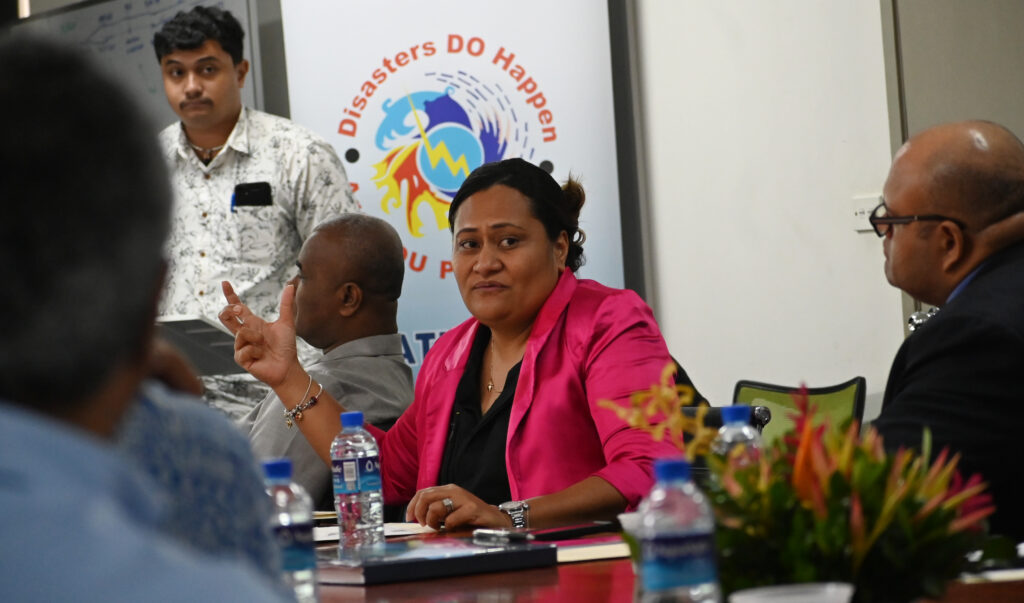
Caption: Director NDMO Ms. Vasiti Soko addressing the Joint Coordination Committee (JCC) of the Project on Mainstreaming Disaster Risk Reduction in Suva.


